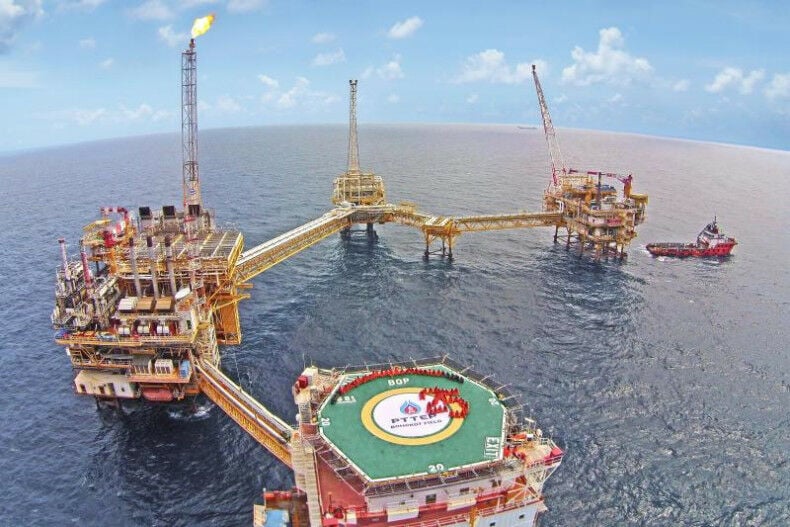Fuelling the future: Thailand’s gas giant gears up production to avert power crisis

Efforts to prevent a second power crisis in Thailand are underway as the nation’s primary gas producer, PTT Exploration and Production (PTTEP) Public Company Limited, looks to increase its output substantially. With plans to double gas production in the Erawan field, Thailand’s largest, Montri Rawanchaikul, the Chief Executive Officer, confirmed plans to scale up production to as high as 800 million cubic feet per day by early 2024. Additionally, production at Bongkok, the company’s second largest field, will see a boost of approximately 10% in 2023.
These aggressive expansion plans are a response to the scrutiny the company endured in the aftermath of last year’s surge in domestic electricity bills. Produced gas from Erawan had declined drastically by roughly 64% in 2022. Subsequently, power producers were forced to source pricier LNG from international markets, placing undue pressure on citizens from an unexpected increase in electric costs. The incident prompted vocal critique of firms like PTTEP for their failure to step up domestic gas extraction.
Emerging as Thailand’s largest source of power, natural gas accounts for over 60% of energy nationwide. However, unexpected surges in the European benchmark, notably the stunning 40% leap on Wednesday, once again stirred concerns over the management of politically sensitive electricity rates, especially in light of Russia’s invasion of Ukraine.
CEO Montri Rawanchaikul shared his concerns in a recent interview, expressing grave fears of a repeat power crisis and pointing out the challenges the LNG pricing surge presents.
“Our top priority is bolstering the reserves and production at local gas fields to ensure national energy security.”
In an episode ahead of the May 14 General Election, interim Prime Minister Prayut Chan-o-cha used several billion dollars on subsidies to cap electricity costs. The General Election proved a turning point for Laos as Move Forward Party’s leader, Pita Limjaroenrat, surprisingly emerged victorious after promising to slash power bills—a promise yet to be realised due to the political stalemate.
In 2022, LNG imports accounted for 29% of gas used in power generation, a shocking rise from the 2018 estimates. This shift has placed a considerable financial burden on the state-owned power utility—the Electricity Generating Authority of Thailand. As a result, it has wracked up debts of roughly 135 billion baht (approximately US$3.8 billion), reported Bangkok Post.
However, these hikes in power prices have inadvertently sparked renewed interest in renewable energy initiatives commissioned by the Thai government.
At the same time, PTTEP has been developing its investment strategies. Montri revealed the company’s focus on regions across Southeast Asia, Oman, the United Arab Emirates (UAE), and Algeria, following the failure to expand in regions like Canada and Australia.
The company has managed to amass about US$3 billion in cash and other liquid assets, although the recent rally in oil prices has led potential targets to demand significantly higher prices.
Latest Thailand News
Follow The Thaiger on Google News:


























